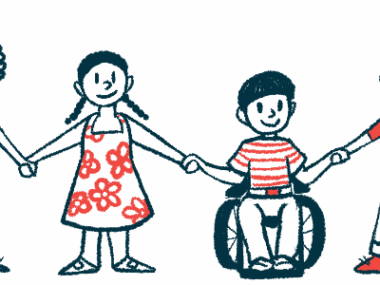Support Urged for Parents Informing Their Children of SMA Diagnosis
50% of the parents were at some risk of developing PTSD, study finds
Written by |

Children diagnosed with spinal muscular atrophy (SMA) are usually informed about the diagnosis by their parents, who frequently lack support and information about the disease, ultimately leading to poor communication that can be emotionally painful for everyone involved, according to a new study.
“Poor communication has a double negative impact: on parents, for not having received the information they thought was necessary, having to seek answers from other sources; and on children, who received information from emotionally shaken parents with no technical ability to approach the topic,” researchers wrote.
These findings highlight the importance of clinicians being actively involved in communicating sensitive medical information with families.
“Physicians must inform the family of the diagnosis and participate in the moment of informing the children, either indirectly, as a support, or directly, if the child feels welcomed, confident and familiar with the medical professional,” the team wrote.
They added that “care and quality of life can be improved by honesty, empathy, hope without lying or deceiving, and the individualizing of each case, in addition to the understanding of prognosis and therapeutic limitations.”
The study, “Communicating the Spinal Muscular Atrophy diagnosis to children and the principle of autonomy,” was published in BMC Pediatrics.
A trio of scientists in Brazil and Portugal conducted structured interviews with 50 caregivers of children with SMA in Brazil. Most caregivers (43 out of 50) were the child’s mother, their average age was in the late 30s, and they represented a range of regions and social backgrounds.
Among the affected children, 18% had been diagnosed with type 1 SMA, 48% had type 2, and 34% had type 3 disease. More than half of the parents (54%) reported that it took more than a year from the time symptoms first became evident until their child was diagnosed with SMA.
In all 50 cases, the treating physician had communicated the diagnosis to the parents. However, the children were only present in 11 of these cases, and more than three-quarters of the parents told their child about the diagnosis without the presence of the doctor.
Among the 38 parents who told their child about the diagnosis without a doctor, nearly all (81.6%) said they had not received any medical support on how to communicate the diagnosis, or that the support was only partial.
Additionally, less than half (48%) of the parents reported getting further medical advice about SMA by talking to their doctor. Other sources used included patients’ associations and social networks.
“This study has demonstrated that the communication of the diagnosis of SMA to affected children or adolescents was predominantly conducted by parents who did not feel prepared to talk about the topic, without professional support, with a predominant search for information from a source unrelated to the attending physician,” the researchers concluded.
Parents and PTSD
During the interviews, the parents were scored on the Event Impact Scale-Revised, a standardized measure that can help predict a person’s risk of developing post-traumatic stress disorder (PTSD) after a distressing life event.
Scores indicated that 50% of the parents were at some risk of developing PTSD, with more than one in five (22%) at high risk of PTSD. The risk was generally higher in parents who reported feeling more unprepared about discussing the diagnosis with their child.
“The present study has demonstrated that the less prepared the parents felt during the communication of the diagnosis, the greater the probability of post-traumatic stress syndrome,” the researchers wrote.
Based on these findings, the scientists recommended “that parents seek support from a specialist to obtain information and clear up their doubts to start the communication process early, using simple and clear language, calmly and honestly, without ambiguities, so that the child understands the informed message.”







